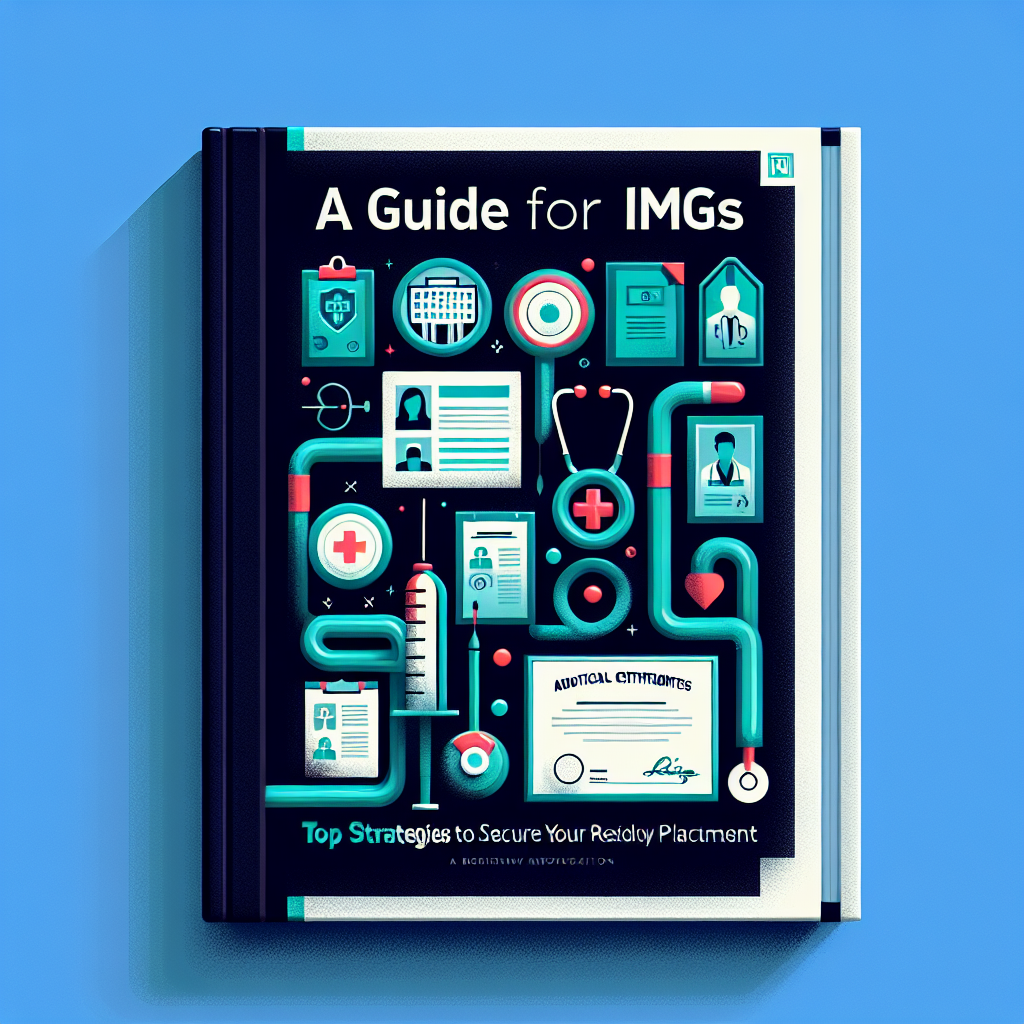As an International Medical Graduate (IMG), securing a residency placement in the U.S. can feel like a formidable challenge. The landscape of medical residency programs is competitive and complex, but with the right strategies, you can significantly improve your chances of success. This guide aims to provide IMGs with practical tips and insights to navigate the residency application process effectively, humanizing your journey in the pursuit of your medical career.
Understanding the Residency Landscape
Before diving into strategies, it’s essential to understand the U.S. residency landscape. Residency programs evaluate applicants on several criteria, including academic performance, clinical experience, letters of recommendation, and personal statements. As an IMG, you may face additional scrutiny due to your international education. Recognizing this reality can help you craft a strong application.
Know Your Eligibility and Requirements
Research the specific eligibility criteria set by the Accreditation Council for Graduate Medical Education (ACGME) and the Educational Commission for Foreign Medical Graduates (ECFMG). Ensure you meet all the prerequisites, including exams like the USMLE (United States Medical Licensing Examination) and the certification requirements by ECFMG. Being well-prepared and informed establishes a strong foundation for your application.
Excelling in Your Exams
Prepare for the USMLE
Performing well on the USMLE is paramount. A high score can enhance your application and offset perceived disadvantages of being an IMG. Utilize a variety of study resources, including question banks, review books, and study groups. Consider enrolling in preparatory courses or utilizing online platforms that provide tailored study plans, ensuring that you cover all relevant material meticulously.
Take Clinical Skills Assessments Seriously
The Clinical Skills portion of the USMLE is fundamental for IMGs. It assesses your ability to communicate effectively with patients and interact in clinical settings. Practice with standardized patients and engage in clinical rotations wherever possible. Seek feedback from mentors to continually improve your skills and interactions.
Develop Your Clinical Experience
Seek U.S.-Based Clinical Rotations
Hands-on experience in U.S. healthcare settings is invaluable. Pursue clinical rotations, observerships, or externships that allow you to gain insights into the American medical system. This experience not only enhances your CV but allows you to build professional connections and obtain U.S.-based letters of recommendation.
Network with Professionals in the Field
Don’t underestimate the power of networking! Attend medical conferences, workshops, and local seminars. Engaging with professionals in your desired specialty can lead to mentorship opportunities and valuable advice. Building relationships with physicians and residency program directors can provide insider knowledge about what each program seeks in an applicant.
Crafting Your Application Materials
Compose a Compelling Personal Statement
Your personal statement is a chance to showcase your journey, motivation, and unique qualities as a physician. Reflect on your experiences and articulate why you are passionate about medicine and your chosen specialty. Be authentic and honest—admissions committees appreciate candidates who express genuine interest and insight into their discipline.
Secure Strong Letters of Recommendation
Letters of recommendation can make or break your application. Strive to get letters from physicians who know you well and can speak to your clinical skills and character. If possible, obtain letters from U.S.-trained doctors who can vouch for your adaptability to the American healthcare landscape.
Understand the Match Process
Familiarize Yourself with NRMP
Understanding the National Residency Matching Program (NRMP) and its processes is critical. Pay attention to deadlines, apply early, and ensure all your materials are submitted on time. Familiarize yourself with the ranking system; rank the programs that align with your career goals and interests.
Prepare for Interviews
Practice Common Interview Questions
Interviews can be nerve-wracking, especially for IMGs. Prepare for common residency interview questions, focusing on both clinical knowledge and communication skills. Conduct mock interviews with peers or mentors to gain confidence and receive constructive feedback.
Showcase Your Unique Perspective
As an IMG, you possess unique experiences and perspectives that can enrich any residency program. Be prepared to discuss your background during interviews, illustrating how your diverse experiences can contribute positively to the residency community.
Embrace Resilience and Adaptability
The path to securing a residency placement can be challenging, and you may face setbacks along the way. It’s crucial to stay resilient and adaptable. Learn from each experience, whether an interview success or a rejection. Keep refining your strategies, and remain committed to your goals.
Conclusion
Navigating the residency placement process as an IMG can be daunting, but with determination, preparation, and the right strategies, you can enhance your chances of success. Keep honing your skills, seeking mentorship, and embracing opportunities for growth. Remember, every step you take brings you closer to your goal of becoming a licensed physician in the U.S. Your journey is unique, and your perseverance will ultimately pay off. Good luck!


